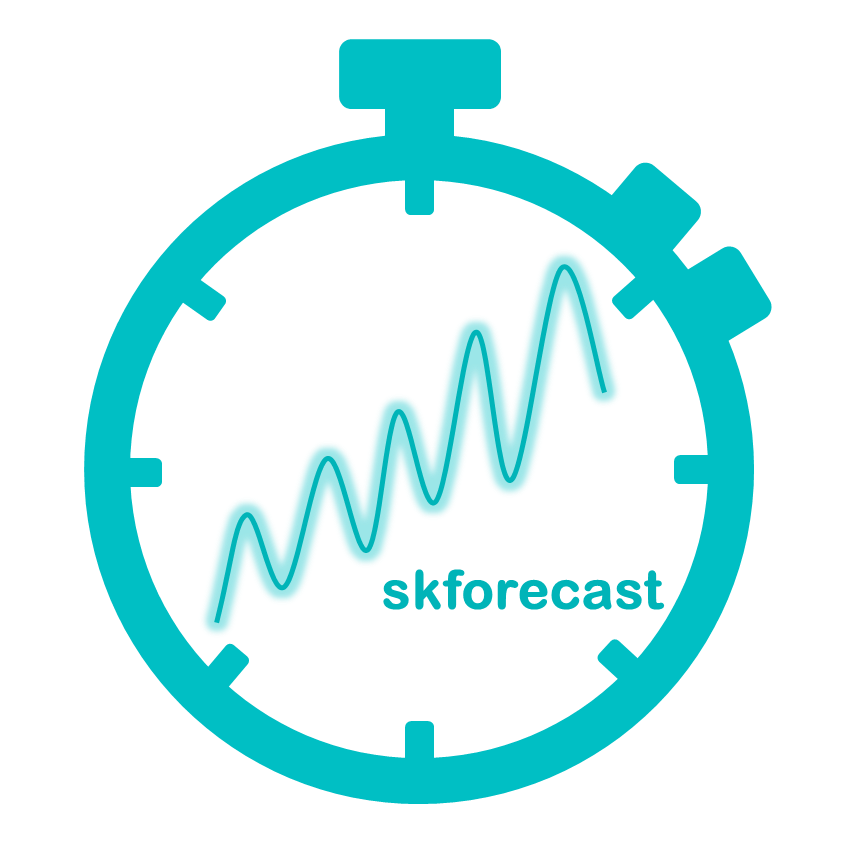
skforecast¶
Time series forecasting with scikit-learn regressors.
Skforecast is a python library that eases using scikit-learn regressors as multi-step forecasters. It also works with any regressor compatible with the scikit-learn API (pipelines, CatBoost, LightGBM, XGBoost, Ranger...).
Version 0.4 has undergone a huge code refactoring. Main changes are related to input-output formats (only pandas series and dataframes are allowed although internally numpy arrays are used for performance) and model validation methods (unified into backtesting with and without refit). All notable changes are listed in Releases.
Installation¶
1 | |
Specific version:
1 | |
Latest (unstable):
1 | |
Dependencies¶
1 2 3 4 5 6 | |
Features¶
- Create recursive autoregressive forecasters from any scikit-learn regressor
- Create multi-output autoregressive forecasters from any scikit-learn regressor
- Grid search to find optimal hyperparameters
- Grid search to find optimal lags (predictors)
- Include exogenous variables as predictors
- Include custom predictors (rolling mean, rolling variance ...)
- Backtesting
- Prediction interval estimated by bootstrapping
- Get predictor importance
Tutorials¶
English
-
Skforecast: time series forecasting with Python and Scikit-learn
-
Forecasting time series with gradient boosting: Skforecast, XGBoost, LightGBM y CatBoost
Español
-
Skforecast: forecasting series temporales con Python y Scikit-learn
-
Forecasting series temporales con gradient boosting: Skforecast, XGBoost, LightGBM y CatBoost
References¶
-
Hyndman, R.J., & Athanasopoulos, G. (2018) Forecasting: principles and practice, 2nd edition, OTexts: Melbourne, Australia
-
Time Series Analysis and Forecasting with ADAM Ivan Svetunkov
-
Python for Finance: Mastering Data-Driven Finance
Licence¶
joaquinAmatRodrigo/skforecast is licensed under the MIT License, a short and simple permissive license with conditions only requiring preservation of copyright and license notices. Licensed works, modifications, and larger works may be distributed under different terms and without source code.